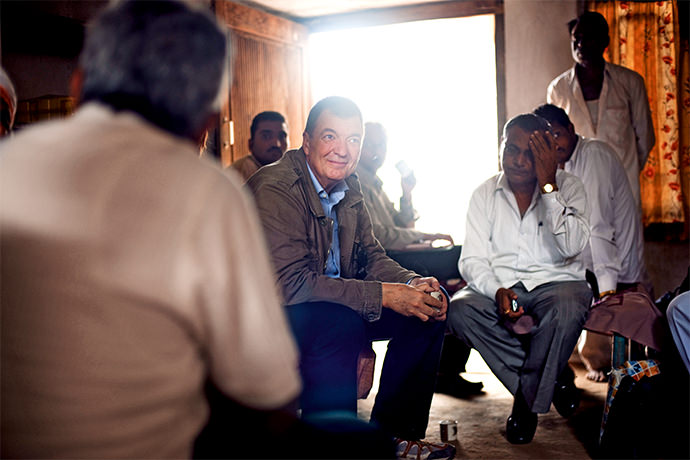bioRe India Ltd has always promoted biodynamic (BD) farming methods among its farmers in addition to organic. “Horn manure”, commonly known as “BD 500”, is obtained by converting high quality cow manure put into cow horns and buried underground for the winter season. In order to reach a large number of the farmers, bioRe India organizes large-scale cow horn activities in the suitable season.
Farmers use only undamaged and well-formed cow horns (not bull horns), which are easily recognized by their calving rings, absent in horns from bulls. In India, the activities associated with burying the cow horns in the ground are done from late September to late October. The horns remain in the ground for six months until April. During this time, the cow manure that has been fermented in the soil over winter inside a cow horn turns into a dark brown, homogeneous consistency and has a pleasant smell of humus or forest soil.
Horn manure dissolved in water for field spraying promotes healthy root growth, vitalizes the soil and helps the plant get what it needs from the soil.
According to the Hindu calendar, the period between April 13 and 21 was the most auspicious time for a “horn festival,” which is also the beginning of the new year. During these days, bioRe India’s training team excavated more than 2,000 cow horns buried at bioRe’s training center and various farmer field training (FFS) sites.
The cow horns taken last week will provide BD 500 preparation for over 1’500 acres of bioRe organic cotton.


“I am happy to bury over 1,000 cow horns every year at the bioRe training center to make biodynamic preparations for our farmers. The quality I got from BD 500 this year was very good” said bioRe farmer Santosh Yadav at the demo farm in the bioRe training center.
The name BD 500 comes from the 500 million microorganisms contained in this valuable BD preparation.



